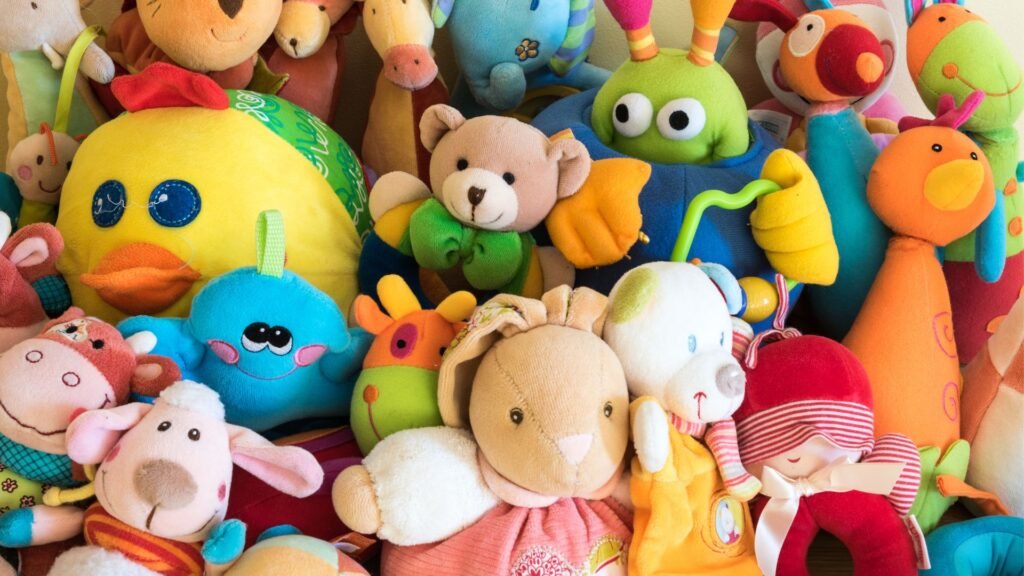According to Renub Research, the China Toys Market is projected to expand significantly from US$ 30.68 billion in 2024 to US$ 52.19 billion by 2033, growing at a CAGR of 6.08% during the forecast period 2025 to 2033. This growth is primarily fueled by rising disposable income, increasing demand for educational and interactive toys, evolving consumer preferences, and the expanding footprint of e-commerce platforms across the nation.
👉 Request Free Sample Report:
https://www.renub.com/request-sample-page.php?gturl=china-toys-market-p.php
Rising Disposable Incomes and Middle-Class Expansion Driving Market Growth
The steady rise in disposable household income and middle-class population growth across urban and semi-urban China is fueling a surge in consumer spending on premium and diverse toy categories. Parents are increasingly willing to invest in quality, educational, and branded toys that contribute to children’s cognitive and emotional development.
This affluence-driven demand is helping international toy brands expand their presence in China, while also enabling domestic companies to upscale product design and marketing strategies to target affluent and tech-savvy consumers.
Educational and Interactive Toys Witnessing Massive Popularity
One of the key market drivers is the rising consumer inclination towards educational toys, STEM-based kits, and interactive learning tools. With China placing a strong emphasis on early childhood education and brain development, toys that support learning, logic-building, creativity, and fine motor skills are in high demand.
Toys integrated with augmented reality (AR), robotics, artificial intelligence (AI), and language-learning features are becoming favorites among parents and schools alike. Educational toy startups are leveraging this trend by launching curriculum-aligned games and smart kits that engage children beyond traditional play.
E-Commerce Platforms Fueling Market Penetration and Accessibility
China’s e-commerce boom is playing a pivotal role in reshaping the toy distribution landscape. Platforms like Alibaba, JD.com, Pinduoduo, and Douyin Mall offer toy manufacturers and retailers access to millions of customers across various regions.
Digital channels have eliminated the need for physical stores, enabling direct-to-consumer (DTC) models and expanding brand reach. Seasonal sales events like Singles’ Day (Double 11) and Children’s Day promotions are further accelerating toy sales through online discounts, bundle deals, and live-stream shopping experiences.
Sustainability and Eco-Friendly Toy Designs Gaining Ground
As environmental consciousness increases among consumers, especially millennial parents, there is a notable demand for sustainable toys made from biodegradable materials, recycled plastic, and organic textiles. This shift in preference is driving companies to adopt eco-friendly production methods, ethical sourcing, and safe packaging practices.
Chinese toy brands are beginning to promote green manufacturing certifications and plastic-free products, aligning with global sustainability goals and improving their reputation among environmentally-aware consumers.
Licensed Character Toys and Entertainment Franchises Leading the Market
The popularity of licensed toys based on film, television, anime, and gaming franchises is a major growth driver. Chinese children’s affinity for global characters like Peppa Pig, Marvel superheroes, Pokémon, Barbie, and Transformers is prompting strong sales of action figures, collectible figurines, and story-based playsets.
Additionally, domestic animation brands such as Pleasant Goat and Big Big Wolf, Boonie Bears, and The King’s Avatar are giving international players tough competition by introducing region-specific storytelling and culturally relevant characters.
Growth of Offline Experience Zones and Flagship Toy Stores
While e-commerce thrives, offline retail and experiential toy stores continue to play a vital role in brand visibility and consumer engagement. Shopping malls and department stores are increasingly hosting toy zones with interactive play areas, robotics demonstrations, and DIY workshops to offer children immersive brand experiences.
Major international brands such as LEGO, Hasbro, and Mattel have expanded their flagship stores in cities like Beijing, Shanghai, Guangzhou, and Chengdu, where parents and children can explore full product ranges and participate in live events.
Favorable Demographics and Two-Child Policy Impact
China’s large and diverse population, especially children aged 0–14 years, provides a broad consumer base for the toy industry. Additionally, the relaxation of the one-child policy and promotion of two-child and three-child policies have positively impacted birth rates in certain urban regions, leading to higher long-term demand for infant and preschool toys.
This demographic shift ensures sustained growth in early learning toys, plush toys, baby rattles, and developmentally appropriate games for toddlers and infants.
Competitive Landscape: Local and Global Brands Competing on Innovation
The Chinese toys market is highly competitive, with a mix of domestic manufacturers and international companies investing in local R&D, e-commerce presence, and partnerships with Chinese distributors. Some of the key players include:
-
Lego Group
-
Mattel Inc.
-
Hasbro Inc.
-
Spin Master Ltd.
-
VTech Holdings Ltd.
-
Alpha Group Co. Ltd.
-
Guangdong Loongon Animation & Culture Co. Ltd.
-
Auldey Toys (part of Alpha Group)
-
Fisher-Price
- New Publish Report:
- Voice Biometrics Market Global Forecast Report by Component (Solutions, Services), Type (Active Voice Biometrics, Passive Voice Biometrics), Deployment Mode (On-premises, Cloud-based), Organization Size (Large Enterprises, Small and Medium-sized Enterprises (SMEs)), Application (Fraud Detection and Prevention, Access Control Authentication, Forensic Voice Analysis and Criminal Investigation, Others), End User (BFSI, IT and Telecom, Consumer Electronics, Automotive, Government, Healthcare, Others), Countries and Company Analysis 2025-2033
- Clinical Trial Supplies Market Global Forecast Report by Services (Product Manufacturing, Packaging, Labeling and Storage, Logistics and Distribution), Phase (Phase I, Phase II, Phase III, Others), Therapeutic Area (Oncology, Cardiovascular Diseases, CNS and Mental Disorders, Others), End Use (Medical Device Industry, Biopharmaceuticals Industry, Pharmaceuticals Industry, Others), Countries and Company Analysis 2025-2033
- Biopreservation Market Report Global Forecast By Product (Equipment, Media, Laboratory Information Management System (LIMS)), Application (Regenerative Medicine, Biobanking, Drug Discovery), Countries and Company Analysis (2025-2033)







